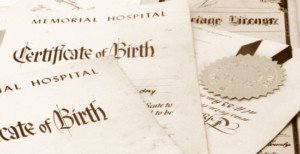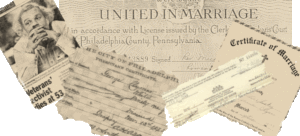Virginia Birth, Marriage, Divorce as well as Death records, known as vital records, produce information about important occasions in your ancestors life.
Vital records, typically maintained by a civic authority, can provide you a more complete picture of your ancestor, assist you to differentiate between two people with the exact same name, and enable you to discover links to a completely new generation. They can comprise of information and facts like the occasion date and place, parents’ names, occupation and residence. The cause of death is also provided in most Virginia death records.
Virginia vital records are a foundation of Virginia genealogy and family history research because they were usually recorded at or near the time of the occurrence, making the document more likely to be reliable. This web page includes links, information and facts that will help you request copies from Virginia state and county vital records keepers. Vital records (births, deaths, marriages, and divorces) mark the milestones of our lives and are the foundation of family history research.
Virginia Health Department Office, issues, documents, and stores certified copies of vital records including birth, marriage, divorce death certificates for occurrences that took place in Virginia. To verify current fees and information the telephone number is (804) 662-6200.

- Ordering Virginia Birth and Death Certificates: The State Health Department Office has records from January 1853 to December 1896 and since June 14, 1912 to present. The fee for all certified copy are $12.
- Ordering Virginia Marriage Certificates: The State Health Department Office has records from January 1853 to present. The fee for all certified copy are $12. Certified copies can also be obtained from the Clerk of Court in county or city where license was issued.
- Ordering Virginia Divorce Certificates: The State Health Department Office has records from January 1918 to present. The fee for all certified copy are $12. Certified copies can also be obtained from the Clerk of Court in county or city where license was issued.
How to Order Virginia Vital Records
- Physical and Mailing Address: Virginia Department of Public Health, 2001 Maywill Street, Richmond, Virginia 23230; General Information Number: (804) 662-6200.
- Mailing Address: Division of Vital Records, P.O. Box 1000, Richmond, VA 23218-1000. All mail orders should include a Personal check or money order made payable to State Health Department. Do not send cash.
- Website Address: http://www.vdh.virginia.gov/vital_records/
- Ordering Vital Records Online – get the certificates within 2-5 days with a credit or debit card from USAVital.com or VitalChek.com.
- Ordering Vital Records by Mail: You can download an application online for Virginia Birth Certificate, Marriage Certificate, Divorce Certificate, Death Certificate Applications. Please allow up to 4-6 weeks for processing of all type of certificates ordered through the mail.
Virginia Archives Vital Records
The Archives Division has copies of surviving birth and death records for the period 1853 to 1896 and marriage records prior to 1936.
- Physical Address: Virginia Department of Public Health, 2001 Maywill Street, Richmond, Virginia 23230; General Information Number: (804) 662-6200
- Website Address: http://www.lva.virginia.gov/
- Birth and Death Records: since June 14, 1912. Only the cities of Hampton, Newport News, Norfolk and Richmond have records between 1896 and June 14, 1912.
- Marriage and Divorce Records: 1918 to present (If the records are not available from the State office, they should be available from the Clerk of Court in county where the marriage license was issued.)
- Using Vital Statistics Records in the Archives at the Library of Virginia
Background of Virginia Vital Records

In March of 1660 the vital records laws were strengthened by the House of Burgesses. An act was passed that stated that “every parish shall well, truly and plainly record and sett downe in a booke provided for that purpose, all marriages, deaths and births that shall happen within the precincts of the parish, and in the month of March in every yeare, the person appointed by the parish so to do, shall make true certificate into the clerke of every county to the intent the same may there remaine on record for ever.” Unfortunately, any certificates that were recorded by county clerks as a result of that law no longer exist.
Early Virginia marriages required publication of banns. The House of Burgesses stated that governors should grant marriage licenses, as of 1631. However, couples could choose to have banns read, instead, reducing their costs. Verbal or written consent was required for marriages that included anyone under 21 years old or anyone who was a servant at the time. The law also stated that marriage ceremonies could not be performed “at any unreasonable tymes but only betweene the howers of eight and twelve in the forenoone.”
As of 1661 marriage bonds were also required. Each couple had to give a bond to the county clerk before receiving their marriage license, certifying that there was no lawful reason why they should not be married. A list of licenses was forwarded from the clerk to the Secretary of the Colony each September. However, the Williamsburg, Richmond, and Jamestown fires destroyed those records.
In 1853 a new marriage law was passed. It stated that each clerk of all independent cities and counties had to keep a marriage register and issue marriage licenses. Each party that wanted to be married had to submit the following information to the clerks: Full Names, Ages, Places of Birth, Residence, Proposed Marriage Date and Place, Marital Status (Widowed or Single), Parents’ Names, Groom’s Occupation, Minister’s Name
When the marriage ceremony was complete, it was up to the minister to send a record of the marriage to the appropriate clerk. The clerk then recorded the event in the marriage register for that county or city. Several Virginia county courthouses still have those records on file.
Most marriage records from before 1853 have been published in various places. Large collections of those published records can be found at the Salt Lake City Family History Library (FHL) and at the Library of Virginia. Many genealogical libraries across the state and the country also have similar collections on file.
Aside from New England states, Virginia was one of the earliest to require death and birth recording. From 1853 to 1896 registrations were recorded on the county level. However, the Civil War caused many counties to stop keeping records for a time. So, only a few deaths and births were recorded while the war was going on. For the most part, records were not properly recorded from 1896 to June 14, 1912. At that time, vital records began being recorded on a statewide level. The FHL and the Library of Virginia have the following records on file: Early Birth Records and Indexes (1853 to 1896), Marriage Records (1853 to 1935), Death Records (1853 to 1896)
Marriage indexes from 1853 to 1935 can also be found on microfilm at the Library of Virginia. An online searchable death index for 1853 to 1935 is currently being compiled. Many marriage, birth, and death records and locations of records can also be found online.
The Virginia Department of Health will not respond to genealogical vital record requests because of lack of resources. Only immediate family members can obtain copies of those records. It takes 4 to 6 weeks to obtain a copy of a record, which can be obtained from the Office of Vital Records. The forms for sending record requests can be found online. Some marriage, divorce, birth, and death records can be obtained within 5 days, thanks to a partnership between VitalChek Network and the Virginia Health Department.
The Division of Vital Records can supply divorce records from January 1, 1853 onward. The Virginia General Assembly or the circuit clerk court can supply earlier records.
Many Virginia Bible records, which contain vital information, can be found at the Library of Virginia.
Searchable Virginia Vital Records Databases and Links
- Social Security Death Index
- USGenweb Archives Virginia Marriage Project
- Virginia Births and Christenings, 1853-1917
- Virginia Birth, Marriage, and Death Registers
- Virginia Birth and Marriage (Husband-Wife) Indexes
- Virginia, Marriages, 1785-1940
- Virginia Marriage Records
- Virginia Marriages before 1824
- Early Virginia Marriage Records
- Virginia Marriages to 1800
- Virginia Marriages, 1740-1850
- Virginia Marriages, 1851-1929
- Virginia Marriages, 1851-1929
- Virginia Vital Records
- Early Virginia Marriage Records
- Henley Marriage/Obituary Index to Virginia Newspapers
- Index to Virginia Marriage Records
- Marriage Index for Richmond Enquirer/Richmond Visitor
- Virginia Death Records Indexing Project
- Virginia Death Certificates, 1912-1939
- Virginia Deaths and Burials, 1853-1912
